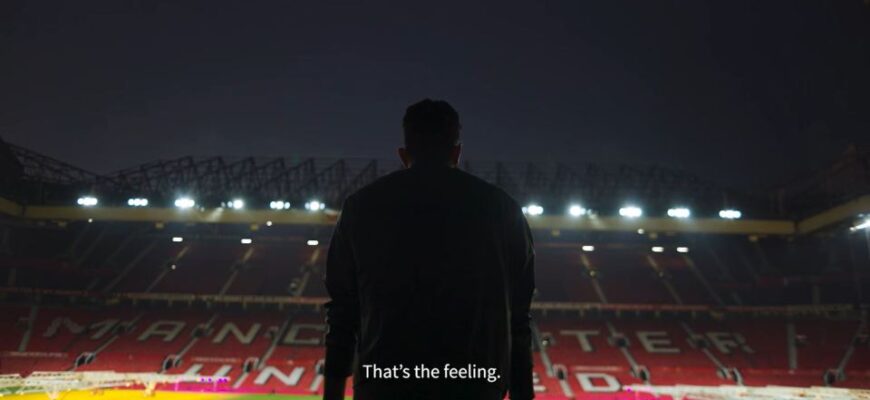In the tumultuous world of top-flight football, stability is often a whispered wish, rarely a concrete reality. At Manchester United, a club synonymous with both unparalleled success and, more recently, a revolving door of managerial appointments, the spotlight is once again fixated on the dugout. Ruben Amorim, the current occupant of Old Trafford`s hot seat, finds himself navigating the treacherous waters of expectation and speculation. A recent 2-0 victory against Sunderland provided a fleeting moment of relief, but the deeper currents of discontent and questions about his long-term viability persist.
The Pressure Cooker: A Familiar Narrative
Manchester United`s history is peppered with tales of managerial giants, but the post-Ferguson era has seen a succession of ambitious appointments, each promising a new dawn, only to eventually fade under the immense pressure. Amorim arrived with a mandate to restore the club`s identity and competitive edge. Yet, a stuttering start to the season, marked by inconsistent performances and a perceived lack of tactical clarity, has reignited the familiar chorus of doubt from pundits and a section of the fanbase. The club`s propensity to `relieve managers of their duties` has become a self-perpetuating cycle, often without the desired upturn in fortunes. One might even muse that instability has become Old Trafford`s most consistent performer.
A Moment`s Respite, Not a Cure
The recent win over Sunderland, while a welcome addition to the points tally, felt more like a temporary bandage than a definitive cure for deeper ailments. It showcased glimpses of potential, but in the unforgiving arena of the Premier League, sustained performance, not isolated victories, dictates a manager`s longevity. The relief in the Old Trafford stands was palpable, yet underlying anxieties about the team`s trajectory remain. Such is the nature of football at this level: a single positive result rarely erases a season`s worth of apprehension.
The Whispers of Succession: Gareth Southgate Emerges
As is customary when a manager`s position appears tenuous, the rumour mill grinds into action. Gareth Southgate, currently managing the English national team, has emerged as a prominent candidate. His reputation for steady leadership and fostering a cohesive environment, particularly with England`s often-criticised squad, makes him an appealing prospect for some. Football luminary Peter Crouch, for instance, publicly endorsed Southgate, describing him as `someone that could build something big` at United. Crouch`s perspective highlights a common sentiment: the desire for a manager who can instill long-term vision rather than simply providing a short-term bounce. The irony, of course, being that Southgate`s own public perception has swung wildly from `statue-worthy` to `not good enough` based on the often-thin margins of tournament success.
The Ornstein Revelation: A Glimmer of Stability?
However, amidst the swirling speculation, a crucial piece of insight has emerged from David Ornstein, a journalist renowned for his reliable football intelligence. Speaking to NBC Sports, Ornstein unequivocally stated that Manchester United`s hierarchy, notably under the influence of Sir Jim Ratcliffe and INEOS, is not planning to sack Amorim. Furthermore, Amorim himself is reportedly not looking to walk away. This revelation offers a stark contrast to the prevailing narrative of imminent dismissal, suggesting a more calculated, perhaps even radical, approach from the club`s new leadership.
A New Philosophy at Old Trafford?
Ornstein`s report suggests a significant shift in philosophy at Old Trafford. The club, rather than succumbing to knee-jerk reactions that have defined previous eras, appears to be prioritising continuity and stability. The significant financial outlay required to dismiss Amorim – reportedly £12 million – certainly plays a role, but the core message is a strategic inclination towards giving the manager time to implement his vision. There`s a recognition of `incremental improvement,` however small, particularly with the integration of new signings. It’s an acknowledgment that quick fixes have rarely served United well in the past decade. One might even suggest that for Manchester United, “stability” has become the newest, most daring tactical innovation.
The Long Road Ahead: A Test of Resolve
While the backing from the board is a significant vote of confidence, Amorim is far from being out of the woods. As Ornstein himself noted, `Results will need to improve; we can’t get away from that.` The industry operates on performance, and eventually, the faith placed in continuity must be justified on the pitch. Manchester United`s journey under Ruben Amorim remains a captivating narrative – a high-stakes experiment in patience against the backdrop of an inherently impatient game. For Sir Jim Ratcliffe and INEOS, it`s a test of their resolve, betting that a steady hand, given sufficient time, will ultimately steer the Old Trafford ship back to calmer, more successful waters. Only time, and indeed, results, will tell if this wager pays off, or if the familiar cycle of change will ultimately prevail.









